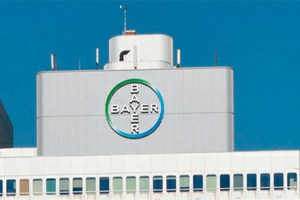 Bayer has said it will invest $300m in a joint venture with CRISPR Therapeutics aimed at finding new therapies for blood disorders, blindness and congenital heart disease.
Bayer has said it will invest $300m in a joint venture with CRISPR Therapeutics aimed at finding new therapies for blood disorders, blindness and congenital heart disease.
Under the terms of the five-year deal, Bayer is also taking a $35m equity stake in CRISPR via its recently-formed Bayer LifeScience Centre (BLSC), a unit given the task of seeking out and partnering organisations with innovative healthcare technologies.
CRISPR specialises in the development of medicines based on CRISPR-Cas9 gene editing, an emerging therapeutic approach which allows precise alterations to be made to the DNA sequences of living cells on demand.
CRISPR-Cas9 introduces a break in a specific place within DNA and triggers a self-repair mechanism. However, instead of restoring the original sequence, CRISPR serves as a new template that can be used to modify the sequence.
Bayer will bring its protein engineering and disease process know-how to the JV, which will be based in London, UK with operations in Cambridge, Massachusetts in the US. It will be led on an interim basis by BLSC head Axel Bouchon, who will serve as chief executive, and CRISPR CEO Rodger Novak who will take the role of chairman.
It is not the first collaboration for CRISPR – in October it signed a $105m upfront deal with Vertex to find new drugs for genetic diseases and also has a deal with Celgene. However, Bayer says it is “the first long-term strategic partnership … to make a substantial investment in the development of target delivery systems in an effort to bring systemic in vivo CRISPR-Cas9 gene editing technology applications to patients”.
“The JV and the Bayer investment are game-changing for our business,” said Novak, noting that the company retains not only a 50% ownership of the projects, but also full access to the delivery technologies intellectual property developed by the JV.
CRISPR will have exclusive use to new delivery technologies for human applications, while Bayer will retain rights to non-human uses.
CRISPR was formed by a team led by Emmanuelle Charpentier, who was awarded the Janssen Award for Biomedical Research last year – along with Jennifer Doudna of Editas Medicine – for the discovery of the CRISPR-Cas9 method of gene editing.




